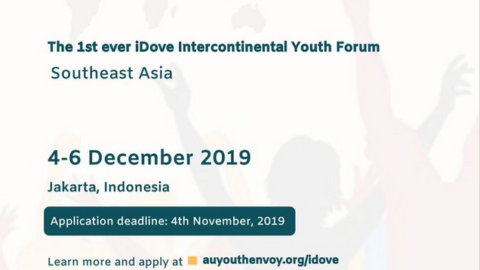Do you remember how it was about a decade ago, when HIV/AIDS prevention campaigns used to pack real scary punches? I mean the days when TV adverts tell you that “every second, someone in Nigeria is infected with HIV” or “2 out of every 10 newborn babies would not cut their 5th birthday cake” – for example. If you watched such adverts, you either accept the futility of trying to escape the scourge or you question the statistic; I did the latter and I went on to become very suspicious of data especially the ones that tell me “every minute …”, “2 out of every 4 Nigerians …” etc. they are just statistics, I say to myself, while I am human.
I have been thinking about life expectancy, this important piece of statistical data that tells you at birth how bad the odds are stacked against you in a particular country. In spite of my cautious acceptance of statistics, life expectancy in Nigeria seem to me to be a lot more than a statistic; it is the Nigerian ground’s way of telling all of us “don’t get any weird long-term ideas, I am going to have you for dinner in x years”. In 2011, life expectancy in Nigeria rose up from 47.56 years to 51.9 according to the Human Development Report of 2011. It means that on the average, the fangs of death on Nigerians would be delayed for 4 wonderful years, so from 2011 we will not die at 47.56 years. We will do so at 51.9 years. This must have been very cheering news for Nigeria since it means we will always find 40 year-olds to serve as President in a country where citizens are now ‘expected’ to die just before their 52nd birthday.
I found that the 52 national anniversary is indeed a very important milestone first for our nation and then for its citizens. First, it tells us that the nation is likely going to outlive all citizens. If this is so then it is comforting to know that certain beautiful things about our nation would be there for, with and in us all of our days – it would be comforting to die, for example, with my green passport in my drawer. On the second instance, it tells the citizen that there is possibility for a life after life expectancy. This is very important to the Nigerian youth who is told off from leadership and political office until their 30s only to be confronted with an unacceptably low threshold of life expectancy. So, perhaps we will live to turn 50, after all.
If I successfully outlived the mere seconds that statistics had prophesized HIV infection for all Nigerians, then why am I concerned about life expectancy? I am because I have seen so much death on this side of life expectancy. In spite of my skepticism to statistics, I am daily confronted with the fulfillment of this statistical prophecy that seems now to have developed a life of its own. In the last week of September I mourned again the passing on of another friend; a Nigerian for whom even if life expectancy was 30, he would not have beaten it. Shortly before this my father had died at “the ripe old age” (so I have been told) of 65. These are my personal tragedies, but it seems to me that Nigerians would easily find similar examples for themselves.
Maybe nations don’t always have life expectancy. But along the line in our national journey, we have heard the calls to dissolve this union, yet somehow we are here today. So if after the civil war, coups and counter coups, cold war, poverty, corruption, looting, and terrorism – to name just a few of the evils that have preyed on our nation; if after all these, we are witnessing Nigeria crossing the threshold of the 51-year life expectancy and commencing its 52nd year in existence then we should by all means roll out the drums and celebrate.
While we celebrate, we should also strategize. Don’t strategize about how you can beat the 51.9-year life expectancy; you might run out of time before you figure all of it out. But let us reflect instead on how quickly we can push forward this cruel piece of statistic before it turns teenage into middle-age for us.
Happy anniversary Nigeria. In spite of life expectancy, you are 52.
_____________
Nengak Daniel is a Nigerian who thinks a 51.9-year life expectancy threshold in Nigeria is too low. As Nigeria celebrates its 52 anniversary since gaining independence, he thinks there is need to ensure that all Nigerians get to live to be a lot older than 52 years. Nengak Daniel Gondyi now studies International Migration and Ethnic Relations at Malmö Högskola in Sweden. He was a Senior Programme Officer at the Centre for Democracy and Development, CDD in Abuja. He holds a Bachelor in International Studies from the Ahmadu Bello University. He reads and writes about human rights and democracy in West Africa. He loves cycling, asking questions and reading. Nengak can be reached via email on nengak.daniel@gmail.com






